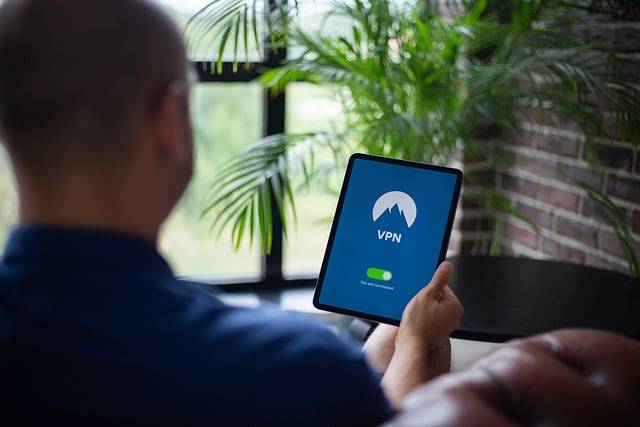Depending on whether the VPN is a paid or free service, it can both induce and prevent packet loss at the same time. Premium VPN connections can assist decrease packet loss when browsing the Internet or gaming. You should realize that only premium VPNs can assist reduce packet loss.
In this article, we will be discussing how and when a VPN can cause packet loss. Stick with us as we explore this and other related VPN topics.
What Is Packet Loss?
Network errors and inconsistencies may result in data packets being missed, delayed, or completely dropped. “Packet loss” describes each time a data packet does not arrive at its intended destination.
Congested networks can cause packets to arrive late, which can cause delays and missing data. In gaming, this is vital as a single second late can mean game over.
What Causes Packet Data Loss
This can happen for a variety of causes, including the ones listed below. Understanding the causes of packet loss can aid in diagnosing and enhancing network performance.
Congestion On The Network
Network congestion is the most prevalent cause of packet loss on the Internet. Packets will clog up a network if it can’t handle the volume of traffic it’s receiving.
As a result, it takes longer for the data packets to get to their destination.
Packet loss can occur due to severe network congestion. Due to congestion, the data packet is discarded after a few minutes of failing to arrive at its intended destination.
During weekends, holidays, and periods of high online activity
Network Hardware Issues
Keep your network up-to-date and expand it as your firm grows to minimize packet loss. Data loss might occur if your network hardware has deteriorated over time or running on outdated drivers and operating systems.
The newest firmware is pre-installed on newer network equipment such as network switches, routers, and firewalls. In addition to addressing vulnerabilities, newer firmware releases also increase the hardware’s capabilities, allowing it to perform even better and reduce packet loss.
Errors In Software Including Your VPN
Every piece of software has flaws. These issues might be caused by a lack of maintenance or by excessive use. There will be inconsistencies and abnormalities in your program or network once a bug is introduced.
Anomalies such as these will cause data packets to be delayed or even discarded and lost. In certain circumstances, the issues can be eliminated by resetting the device and removing cached memory.
You may, however, have to reinstall or patch the program to solve issues and prevent additional packet loss.
Overloaded Devices
Network congestion and packet loss can occur when too many devices are connected to a weak network. At locations like colleges and corporations, this is a prevalent problem.
By boosting your network infrastructure’s hardware and strengthening its device compatibility, you can solve packet loss caused by several devices being connected at the same time.
Damaged Wires
This is the most prevalent reason for packet loss. Even though there are no obvious signs of wear and tear, cable damage occurs regularly. For example, in a hot area, your Ethernet connection will lose its ability to transmit data a year from now.
After six months, you’ll experience substantial packet loss and service interruptions. Because of the continual heat on the wires, the insulation in the cable gets melted.
Rodent-infested areas have the most corroded wires.
In addition, if the Ethernet wire is not buried, birds will perch on it. The Ethernet cable can be stretched and snapped from the inside.
Problems And Consequences Of Packet Loss
A packet loss problem might be mistaken for a service outage by an ordinary user. If you’re aware of these implications, you’ll be able to identify packet loss more quickly if it occurs on your network.
Information That Is Not Current Or Incomplete
The first effect of a packet loss is the loss of data. You will view a watered-down version of a webpage on a network connection experiencing packet loss, and many components will be missing.
The graphics may appear out of place, and the text and color scheme may be jarring. This is not due to an issue in the website, but rather a packet loss, causing web page information to be lost in transit.
It Takes A Long Time To Load The Page
When it comes to coping with missing packets, streaming services and social media networks use a separate protocol. When a packet is lost in transit, the receiver device requests it again, and the destination server resends it.
You’ll notice slower loading, gaming, and browsing due to this delay in the delivery of data packets.
Interruptions While Live-Streaming
Constant lagging and buffering can plague your streaming experience if you’re on a network that loses data packets. The stream will stop and resubmit the request for the missing data packet if your streaming device detects a problem with the data transmission.
If the streaming device doesn’t get the data packet, your video will continue to buffer.
How To Fix Packet Loss: 6 Answers You Should Know
Purchase a Premium Gaming VPN
A gaming VPN is designed specifically to handle packet loss and increase the speed of the delivered packet. This is done by having multiple routes that work together, instead of just one.
The service I recommend is No Ping as a gaming VPN as they do wonders for these issues and even increase FPS (frames per second). You can use my link and code to get an extra 20% off at checkout.
20% Off Code: kevinsmak
Turn Off and Restart Your Hardware
A network switch or wifi router that has been in use for a long time might malfunction after some time. Packet loss is the most prevalent issue, and it is frequently caused by an overflowing cache.
Packet loss can be alleviated by flushing your network’s cache memory. To remove the cache on your network devices, simply reboot them.
Remove Interfering Elements
For wireless devices to communicate and perform their functions, they all generate radio waves. Packet loss might occur as a result of wireless device interference with your wifi connection.
Shut off any wireless devices in your house to ensure that the cause of packet loss isn’t something else, such as Bluetooth speakers or wireless cameras.
Check for packet loss on your primary device after turning off all other wireless devices. If the problem has been fixed, you may be certain that the packet loss was caused by wireless interference.
Wired connections can potentially be affected by wireless interference. As Ethernet cables go through an area where electromagnetic devices are present, the electromagnetic fields from these devices can distort data flow and cause packet loss.
Switching From Wireless To A Hardwired Network
Your wireless network may be experiencing packet loss. Having a weak wifi signal in the room where you’re seated might factor in the problem.
Packet loss might occur if you are too far away from your router and the surrounding walls obstruct the wifi signal.
Amplifier For wifi
The Ethernet port isn’t available on all devices. In contrast to a laptop with an Ethernet port for easy cable connection, other devices such as tablets and smartphones, even certain laptops, lack an Ethernet connector.
To fix packet loss on a device without an Ethernet port, all you can do is boost the wifi signal in the area. If the wifi signal is poor in the room, consider installing a wifi booster.
Packet loss may be reduced by using a wifi amplifier to boost your wifi signal.
Update The Software Including VPN On The Device
Hardware manufacturers are required by law to deliver new firmware and upgrades for four years from the date of purchase. That piece of technology has become old after only four years of use.
If your gadget was released less than four years ago, you would notice that you receive updates and patches every few months to put on it. The most common problems and significant improvements will be addressed by these patches and updates.
Final Remarks
VPNs, on their own, aren’t going to be much help if packets are being dropped directly at your location. Using a virtual private network allows you to avoid your Internet Service Provider’s (ISPs) low-quality servers.
If the packet loss is caused by your ISP then a service like No Ping will definitely help your dropped packets. It’s a much better connection without having to change Internet service providers or buy new hardware.
Again, save 20% off at checkout with code: kevinsmak







